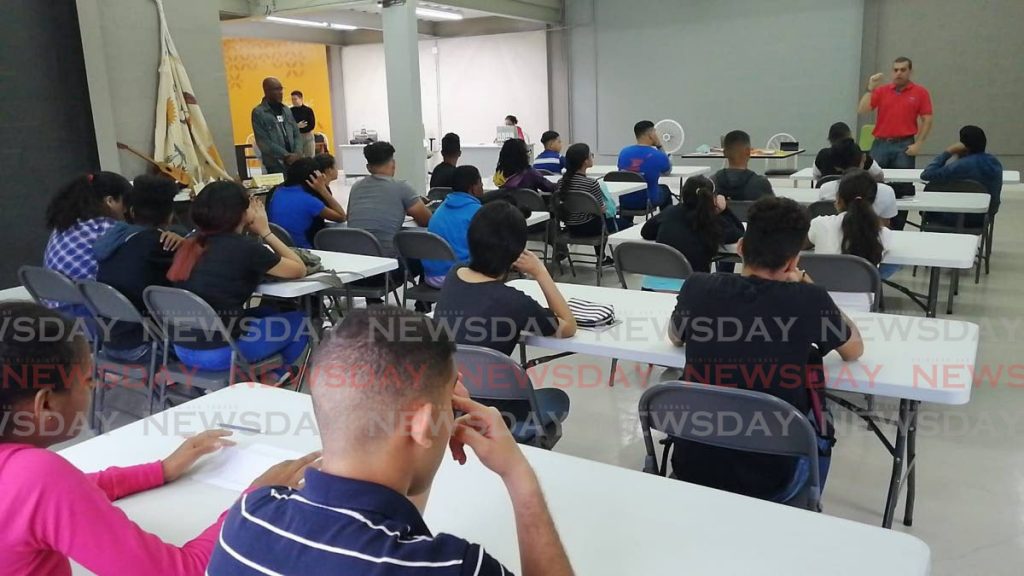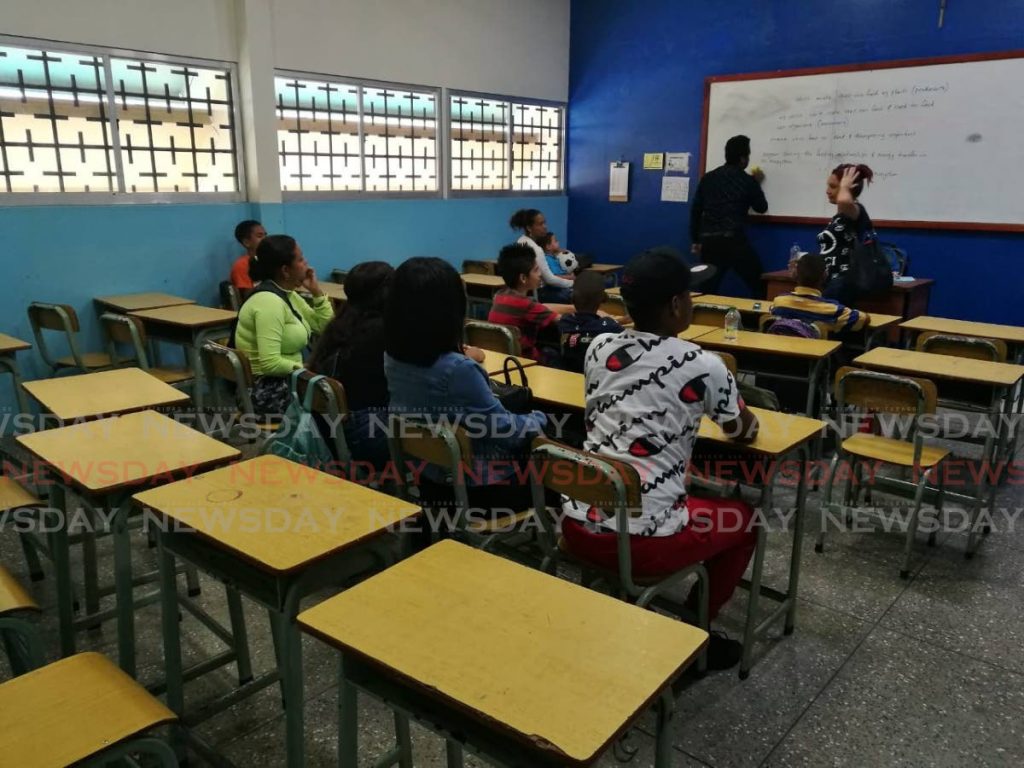Equal Place prepares 1,000 migrant students for Catholic school

The Equal Place educational programme is preparing 1,080 Venezuelan refugee children for possible entry into TT's Catholic education system.
Espacio de Equidad, as it is known in Spanish, is promoted through the Education Working Group (EWG), made up of UNICEF, UNHCR, Living Water Community (LWC), TTVSOLNET, Catholic Education Board of Management (CEBM), Archdiocesan Ministry for Migrants and Refugees (Office of the Archbishop), Pan-American Development Foundation (PADF), Ministry of Education focal point.
Speaking with Newsday on Monday, Equal Place administrators said 535 boys and 545 girls are currently receiving virtual classes owing to the covid19 pandemic19.
UNHCR senior community-based protection assistant Mattieu Ramsawak recalled that, in 2019, the TT Government gave permission for Venezuelan children to enter public schools run by the Catholic Church.
Ramsawak said: "Supporting children includes ensuring that they and their families know how the Trinidadian educational system works."
At the beginning of the programme in September 2019, 600 students were attending face-to-face classes, but as a result of the pandemic and the adaptation of virtual classes that number increased.
Equal Place currently serves 783 children in primary school and 297 in secondary school.
Migrant and refugee children in TT are receiving help in getting mobile devices from the LWC.
UNICEF Child Friendly Space co-ordinator Matthew Batson explained that migrant primary school students followed the same subjects as local students according to the Ministry of Education guidelines for public schools: maths – English language arts, science, social studies and physical education.

Meanwhile, high school students receive their classes through the Notesmaster and Dawere programs.
Batson said, “This group is training in mathematics, English A, business principles, Spanish, integrated science, genetics, computer science principles, chemistry, physics, voluntary public services, probability and statistics, art in world culture, biology, trigonometry, economics.”
UNICEF humanitarian co-ordinator for TT Alma Jenkins de Acosta said Equal Place had certain education guidelines for migrants.
To this end, the Pan-American Development Foundation, in association with the University of the West Indies (UWI), has developed a programme to train teachers and have the capacity to receive this group of migrant students.
As of now, 34 teachers / facilitators (20 from TT and 14 from the migrant population) are in charge of teaching the classes.
Jenkins de Acosta said, “The teacher training plan is focused on trauma, learning and participatory methodologies."
He said teachers and principals of the 20 Catholic schools in TT were working on the plan to admit Venezuelan children to their schools."
Ramsawak said, "The challenge is to be able to ensure the number of facilitators with the appropriate profile to be able to expand the number of children, as well as physical spaces, mobile devices and all that entails additional financial resources."
Child supervision during online learning is another challenge for migrant families.
Jenkins de Acosta said, “The facilitators are giving the classes on the weekends, when parents can support the children, it is a general situation with all the children.”
Fifty-six per cent of refugee children from UNHCR are receiving some type of educational services. In addition to Equal Place, there are other organisations that are helping and educating migrant children.
Jenkins de Acosta added, “It is very important to highlight that children in any part of the world, regardless of their status, have the right to education. The local population must understand that all migrant children also have the same problems of Trinidadian children such as internet access, access to tablets and time for parents to accompany them.” she said.


Comments
"Equal Place prepares 1,000 migrant students for Catholic school"